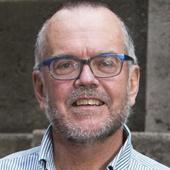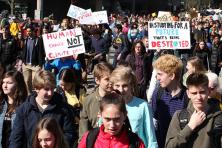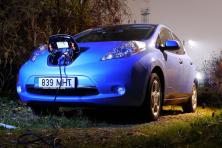First, my personal news: May 27 marks my final day on staff at Climate Solutions. That’s right, I’m retiring from a staff role, although I plan to stay actively involved in the critical work to promote clean and efficient energy and speed the transition from fossil fuels in the Northwest.
During my time leading the Business Partnership program at Climate Solutions, I am proud to have had the chance to work with so many who are doing critical work innovating, financing and deploying practical and profitable solutions to our climate crisis.
It has been a great privilege to work closely with leaders from business, academia and government who are developing cleaner alternatives to power our transportation sector. This work continues at Climate Solutions as part of our Bright Future initiative, led by our Deputy Director, Eileen V. Quigley, to demonstrate that a rapid transition from fossil fuels to clean and efficient energy is possible, practical and necessary. All of our leadership work on sustainable advanced fuels and transforming the transportation sector is now housed within that initiative, under the banner of Moving Beyond Oil.
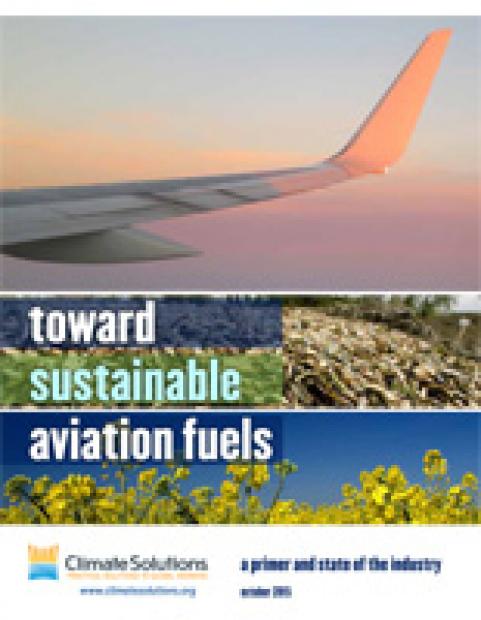
Our Bright Future team recently produced two major reports on transforming transportation. Toward Sustainable Aviation Fuels examines the current state of play in the efforts to find lower carbon fuels to power commercial aviation. That sector accounts for 2 percent of global carbon pollution, an amount projected to increase to between 3 and 4.7 percent by 2050 without concerted efforts to curb aviation emissions. This paper updates work we have done over the past six years with leaders in the aviation industry, starting with the groundbreaking Sustainable Aviation Fuels Northwest stakeholder report in 2011.
While more efficient aircraft and engine design, streamlined flight operations, and improvements to air traffic management systems can slow the increase of climate pollution caused by the aviation industry, actually reducing that pollution over the coming decades will require substitute fuels with a lower carbon footprint. Our paper is an excellent guide to understanding the critical path to reducing aviation-caused carbon pollution.
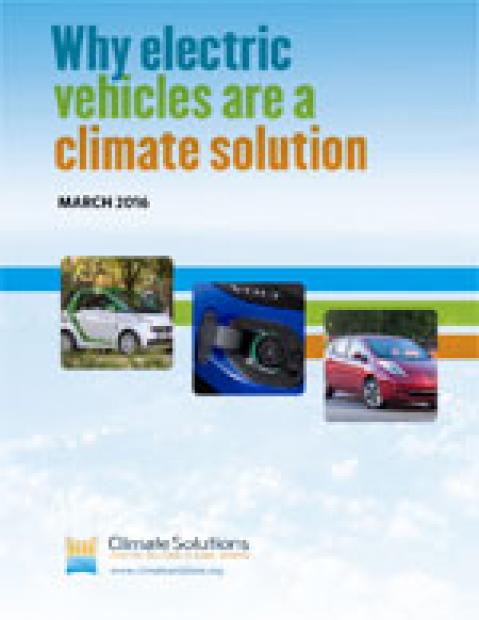
Electric vehicles will also play a critical role in displacing diesel and gasoline and decreasing carbon emissions from cars, trucks and buses. That’s why Climate Solutions produced another new report examining Why Electric Vehicles are a Climate Solution. This paper explains the critical difference widespread adoption of EVs will make for the climate, and how utilities and communities can address the challenges created by widespread EV adoption.
We found that EVs are a great climate solution across the country but have particular benefits here in the Northwest, where we have a clean grid that is rapidly getting cleaner. In the majority of the US, where natural gas is burned to supply the last kilowatt on the grid at any given moment, EVs are clean as the most fuel-efficient cars: producing the same CO2emissions as a 64-mpg gasoline car. That story is much better in our region. Measuring their impact with the average kilowatt-hour sold, West Coast EVs compare with cars with per-gallon mileage in the 80s and 90s. In the longer term, as regulatory directives and falling clean energy prices add more solar and wind power to the grid, they’ll account for even less climate pollution.
What’s more, the impacts on the grid are manageable and can even be positive. If half of the light-duty vehicle miles in Oregon and Washington were driven on battery power, electricity sales would increase by just 6 percent. Although the total kilowatt-hours needed would increase, utilities would gain flexibility from car owners who set up their EVs for smart-charging: refueling with electricity when it is most readily available on the grid. It wouldn’t take hordes of cars to make a significant difference: adjusting the charging cycle on 3,600 EVs is the equivalent, from the utility’s point of view, of a 25-MW gas-fired peaker turbine. This load growth can also provide a new source of revenue as utilities step up their investments in energy efficiency and conservation.
To learn more about the potential for EVs to break our petroleum habit, I invite you to read a longer summary and the full report.
It has been a great honor to work with all of you and my outstanding colleagues at Climate Solutions over the past nine years. With the Bright Future initiative, and with Kristen Sheeran and Vlad Gutman providing great leadership on our policy efforts in Oregon and Washington, I am excited that we are poised to continuing leading the way toward sustainable prosperity in the Northwest. We look forward to doing it with you.

